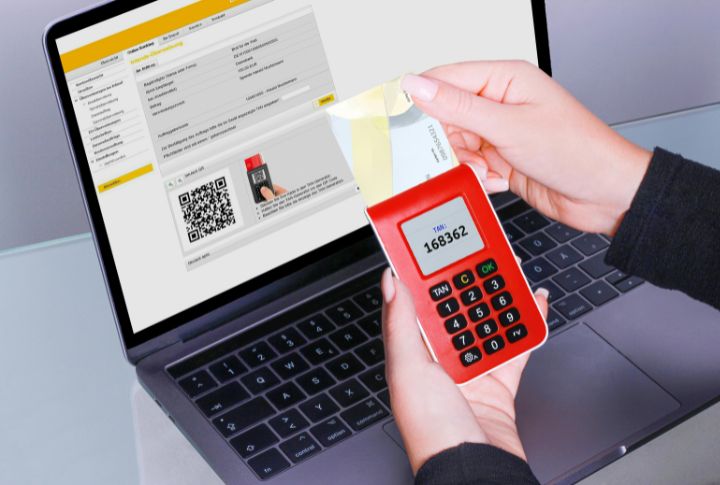
When cash is tight and every penny counts, knowing how to make your money go further becomes essential. These 15 practical strategies will help you overcome financial hurdles, whether economic or personal. We’ve handpicked these brilliant tips that will empower you to take control of your finances and come out stronger on the other side.
Master the Art of Meal Planning

Planning your meals weekly will help you cut grocery bills. You can do so by browsing store flyers for deals and then building your menu around sale items. Another way to plan meals is by cooking in batches and freezing portions for quick, budget-friendly meals later. This approach saves time and money while ensuring you always have something tasty and nutritious.
Embrace the 30-Day Rule

Before buying non-essentials, wait 30 days and give yourself enough time to think about it. Consider writing down what you want and revisiting it a month later instead of making an immediate purchase. You often discover that the urge passes, saving you from impulse purchases. If you still want it, look for better deals or alternatives. This cooling-off period helps separate actual needs from fleeting wants.
Turn Your Home into an Energy-Saving Fortress

When it comes to saving energy in the home, you must understand that those small changes you make add up to make a big difference in utility bills. Use LED bulbs, seal drafts, and adjust your thermostat. Also, unplug devices when not in use to avoid phantom energy drain. Consider a programmable thermostat to optimize heating and cooling. These tweaks slash bills without sacrificing comfort.
Become a Coupon and Cashback Wizard

To maximize your savings, combine coupons with store sales. Additionally, you can earn cashback by using cashback apps and credit cards. However, remember: it’s only a deal if you need it anyway. To streamline your savings efforts, create a system to organize your coupons and track cashback offers. This strategy turns everyday shopping into a fun and rewarding money-saving game.
Master the Art of Negotiation

Don’t shy away from haggling. In fact, make it a habit to call your service providers yearly to ask for better rates. By comparing offers from competitors and using them as leverage, you can often negotiate significant savings. Remember to be polite but firm; be bold and switch if they will budge. You’d be surprised how a simple ask can usually lead to significant savings.
Swap, Don’t Shop

Set up clothing and toy swaps with friends or neighbors. This is a great way to declutter your home and find new items without spending any money. For example, you could offer to fix a friend’s computer in exchange for homemade meals. Join local “Buy Nothing” groups to give and receive free items. These groups are a great way to find things you need.
DIY Your Way to Savings

Learn basic home and car maintenance. Not only will you save money, but you’ll also gain valuable self-reliance. Start small and build your skills. From changing your oil to fixing leaky faucets, many simple repairs are accessible to beginners, thanks to YouTube tutorials. By tackling these tasks, you’ll become more self-sufficient and save money in the long run.
Rethink Transportation

When traveling, prioritize walking, biking, or public transit whenever feasible. If driving is necessary, combine errands to minimize gas consumption. For occasional trips, explore carpooling or car-sharing services. Carefully compare all transportation options on longer journeys, including buses and trains. By making smart transportation choices, you can substantially reduce your monthly expenses.
Grow Your Own Groceries

Gardening can be a satisfying hobby that provides fresh, nutritious food while reducing stress. To start a garden, even if it’s just a tiny space like a windowsill, you can grow high-yield, easy-care plants like tomatoes or lettuce. Additionally, preserving excess produce through freezing or canning can help cut grocery bills and ensure a continuous supply of homegrown food.
Make Entertainment Frugal and Fun

Explore free local events like concerts in the park or museum-free days. Instead of dining out, host potluck game nights. Use your library for books, movies, and even tools or instruments. To save on entertainment costs, look for free trials of streaming services, but always remember to cancel before they charge you.
Audit Your Subscriptions

First, list all subscriptions and memberships to streamline your budget, such as gym memberships, magazine subscriptions, and streaming services. Next, ask yourself, “Do I use this enough to justify the cost?” For example, consider canceling the membership if you last went to the gym a few months ago. Finally, look for annual payment options for the subscriptions you keep, which often offer discounts.
Become a Secondhand Savant

Thrift stores, yard sales, and online marketplaces offer excellent deals on various items. If you’re looking for quality items that will last, it’s worth learning how to spot valuable brands and materials. Additionally, don’t overlook the potential of upcycling—a coat of paint can transform a tired piece of furniture. When you buy more used items, you can save money and reduce waste.
Build an Emergency Fund, Penny by Penny

Start small if you must, but start. To build your savings, set up automatic transfers to a savings account, even if it’s just $5 a week. Additionally, use apps that round up purchases and save the difference. Consider these funds untouchable except for true emergencies. By consistently saving, your savings will grow faster than you think, providing peace of mind.
Optimize Your Banking

Shop around for accounts with no fees and better interest rates. Online banks usually offer better terms than traditional brick-and-mortar institutions. Therefore, once you’ve found a suitable account, use automatic billing to cancel any late payments. Additionally, use your bank’s app to track spending in real time. By adopting these innovative banking practices, you can keep more money in your pocket.
Learn to Barter Like a Pro

Offer your skills in exchange for goods or services you need. You can join local timebanks where members trade hours of work. You can also barter with businesses directly. For example, your graphic design skills might score you free haircuts. Get creative, and don’t be shy about suggesting trades. Bartering can help you expand your resources without spending cash.

Comments
Loading…